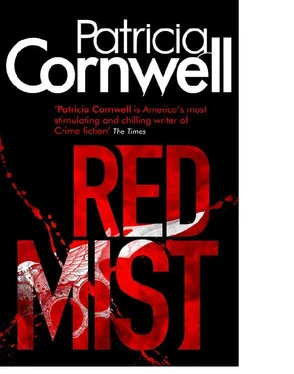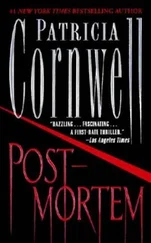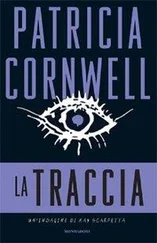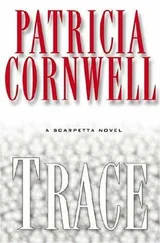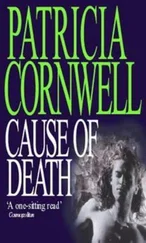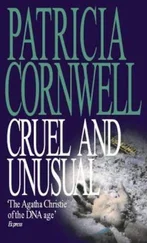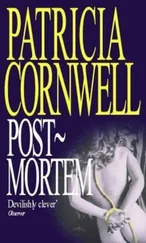By all accounts, it appears she was dead from a massive heart attack at seven-fifteen p.m., or not quite two hours before she was scheduled to die by lethal injection. As I continue to review her case, Jaime talks from the kitchen while she arranges each of our meals on her rental unit’s white plates. She’s talking about the Jordan family. She wants their injuries and any other artifacts and crime scene information interpreted as precisely and as irrefutably as possible. She needs my help.
“Colin should be able to tell you about their injuries and everything else,” I remind her. “He went to the crime scene and did the autopsies. He’s a very competent forensic pathologist. Have you tried to discuss the cases with him?”
“One perpetrator. Lola Daggette. Case closed,” Marino replies. “That’s what everybody around here’s got to say about it.”
As Jaime gets out wineglasses I recall Colin’s demeanor during the case presentation he gave at the NAME meeting in Los Angeles years ago. He was personally outraged by the savage deaths of Dr. Clarence Jordan and his wife, Gloria, and visibly upset over their two little children, Brenda and Josh. Colin’s opinion then was that only one person had committed those crimes — the teenage girl who was washing the victims’ blood out of her clothing in a halfway-house bathroom within hours of the homicides. Any subsequent stories and rumors about Lola Daggette’s mysterious accomplice were a defense attorney’s fiction, I remember him saying.
“I’ve been to his lab only once, several weeks ago,” Jaime says. “He didn’t come out of his office to meet me, and when I went in to speak to him, he didn’t get up from his desk.”
“You can’t force him to be friendly, but I can’t imagine him deliberately impairing an attorney’s ability to get needed information,” I reply, and what I really want to say is that Jaime is Jaime, and what’s worse, she’s a New Yorker, one of those northern aggressors who comes to a small southern city and assumes everyone is backward, bigoted, dishonest, and somewhat stupid.
I suspect her attitude is obvious when she deals with Colin, who grew up in these parts and is steeped in local tradition, whether it is participating in Civil War reenactments or Irish parades on Saint Patrick’s Day.
“He’s bound by statute to give you anything that could be exculpatory,” I add.
“He didn’t volunteer anything.”
“He doesn’t have to volunteer anything.”
“He thinks I’m just looking for someone to support an alternate theory.”
“He very well might think that, because that’s exactly what you’re doing,” I reply. “You’re doing the same thing any good defense attorney does. What I haven’t been told is how or why it is you’re involved. You left the DA’s office and suddenly you’re in the opposite camp, representing Lola Daggette. And what is your interest in Barrie Lou Rivers?”
“Cruel and unusual punishment.” Jaime pours wine. “Barrie Lou was so terrified as she awaited her execution in a holding cell, she died of a heart attack. Whose idea was it to serve her a last meal that was identical to what she poisoned her victims with? Was it hers? If so, why? To show remorse, or a contemptuous lack of it?”
“There’s no forensic analysis that will answer that,” I reply.
“I seriously doubt she picked the menu,” Jaime makes her point. “I suspect the objective was to taunt her with what awaited her when she was strapped on that gurney, to terrorize her about what the death squad had in store for her and how much they were looking forward to her getting what she deserved. Barrie Lou had a panic attack, all right. She was literally scared to death.”
“I don’t know if it’s true she was tormented, and I don’t think you can know it, either, unless someone who was involved admits to such a thing. And I’m curious about why you’re suddenly so interested,” I tell her frankly. “I’m puzzled by why you’re suddenly up to your elbows in defending the very sort of people you used to lock up and throw away the key.”
“Not suddenly. I’ve been having discussions for a while. My troubles with Farbman and just my having my fill … well, it goes back longer than you might think. I alerted Joe at the end of last year that I was looking into other prospects, that I was interested in wrongful convictions.”
“Good ole Joe Nail ’em Nale,” Marino quips, as he flips a page of another report. “I wish I was a fly on the wall when you told him that,” he says to Jaime.
Joseph Nale is the district attorney of Manhattan, Jaime’s former boss, and not the sort to be favorably inclined toward any individual or organization dedicated to exonerating people wrongfully convicted of crimes. Most prosecutors, if they’re honest about it, aren’t fond of lawyers who make it their mission to fight the injustices caused by other lawyers and those they recruited as experts.
“I informed him I’d also been talking with some attorneys I know who work with the Innocence Project,” Jaime continues to explain.
“The one here in Georgia?” I ask.
“The national organization in New York. But I’m acquainted with Curtis Roberts, and I did ask him to do a favor.”
“So Leonard Brazzo wouldn’t know you were behind the invitation for me to meet with Kathleen Lawler. So I wouldn’t know,” I presume.
“I’m having dialogues with firms and in the process of narrowing it down,” Jaime says, as if she didn’t hear me. “Much of it depends on where I want to live.”
“I’m sure what happens in the Lola Daggette case will have some bearing on which law firm you pick,” I say, not so subtly.
“Obviously a large one that also has offices in the South and Southwest,” she replies, as she hands me a glass of wine and gives Marino a Diet Coke. “Red states are fond of executing people, although I don’t intend to have my home base in Alabama or Texas. But to answer your question about how I came to be involved in Lola Daggette’s wrongful conviction, she wrote a number of letters to the Innocence Project and a number of groups and lawyers who take on cases like hers pro bono. The letters were badly written, let me add, and were shelved until this past November, when an emergency stay of execution was denied by the Georgia Supreme Court, inspiring a legal review by various public policy organizations. Then earlier this year there was a botched execution here in Georgia that has caused a lot of concern about whether it was deliberately cruel.
“I was asked if I were interested in Lola Daggette’s case, as there seemed to be some utility in having a woman involved, I was told,” Jaime continues. “Lola’s not known to cooperate with men, and in fact is incapable of trusting a man because of the extreme abuse she suffered as a child at the hands of her stepfather. I said I would take a look. At the time, there was no reason to think there might be any link to you. I started reviewing Lola’s case before Dawn Kincaid attacked you.”
“I’m not seeing a link to Lola Daggette beyond her being in the same prison as Dawn Kincaid’s biological mother,” I reply. “Although if Dawn’s mother, Kathleen Lawler, is to be believed, Lola seems to have some sort of connection to Kathleen. An adversarial one.”
“Most of these cases reviewed by national litigation and public policy organizations involve people incarcerated in Georgia, Virginia, Florida, the red states.” Jaime ignores what I just said. “Many of these people are given life sentences or sentenced to death because of flawed forensics, misidentification, coerced confessions. And there aren’t many women on death row. Currently, Lola is the only woman on death row in Georgia, only one of fifty-six nationwide. And there aren’t many women attorneys with my degree of experience and track record taking on these cases.”
Читать дальше
